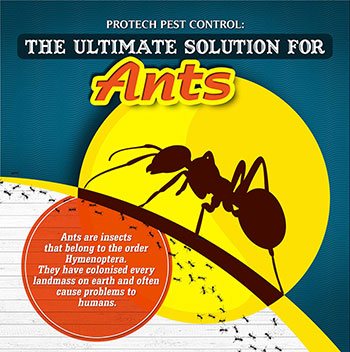The Function Of Pest Control In Food Security And Health
The Function Of Pest Control In Food Security And Health
Blog Article
Content Produce By-Klausen Thorsen
Are you familiar with the surprise dangers that bugs posture to the safety and hygiene of your food? From rats to bugs, these unwanted site visitors can contaminate your ingredients, surfaces, and storage locations.
This write-up explores the important function of pest control in maintaining the highest possible standards of food safety and health. Discover efficient strategies and avoidance actions that will certainly aid you protect your company, clients, and online reputation.
Do not let insects jeopardize the quality of your food.
The Impact of Bugs on Food Safety and Hygiene
In your kitchen area, pests can have a considerable effect on food safety and hygiene. These unwanted guests, such as rats, pests, and roaches, can infect your food, surfaces, and tools with harmful microorganisms, viruses, and bloodsuckers. They can easily access your cupboard, closets, and also your refrigerator, leaving droppings, urine, and hair.
Not just can they ruin your food by eating with product packaging, yet they can also spread conditions like Salmonella, E.coli, and Listeria. Envision preparing a meal for your family, unaware that the ingredients you're utilizing are currently polluted.
It's critical to take immediate activity to avoid and manage bugs in your kitchen area. Routine cleansing, appropriate food storage, and specialist insect control actions are important to guarantee food security and maintain a hygienic atmosphere in your cooking area.
Efficient Bug Control Techniques for the Food Sector
Carrying out reliable bug control strategies is crucial for preserving food security and hygiene in the food sector. By applying these approaches, you can prevent bugs from infecting the food and make sure that your items are safe for usage.
One efficient technique is to routinely evaluate and check your center for indicators of parasite activity. This includes checking for droppings, nests, or any kind of damages caused by bugs.
It's also crucial to seal all entry indicate protect against parasites from going into the facility. Regular cleansing and hygiene are important, as bugs are drawn in to food residue and spills.
In addition, appropriate waste administration is critical to prevent the buildup of food waste that can bring in pests.
Keeping Hygiene Criteria Via Bug Avoidance Actions
To keep hygiene requirements, you must regularly implement parasite prevention procedures. By taking proactive actions to prevent parasites from entering your food establishment, you can make certain the security and tidiness of your facilities. Right here are some reliable pest avoidance procedures to take into consideration:
- Seal all splits and holes: Bugs can enter via even the tiniest openings. Routinely check and seal any gaps in doors, windows, wall surfaces, and floors to maintain insects out.
- Appropriate waste monitoring: Throw away food waste promptly and safely in secured containers. This will certainly minimize the tourist attraction of pests and prevent problems.
- Routine cleaning and sanitizing: Keeping sanitation in your facility is important. Consistently clean and disinfect all locations, paying unique focus to areas where insects might hide or breed.
- Norway rat out a monitoring system: Frequently inspect your premises for indicators of parasite task. Mount parasite monitoring devices, such as catches or sensors, to recognize and resolve any kind of prospective concerns at an early stage.
Verdict
So remember, when it comes to food safety and hygiene, pest control plays a critical duty.
By applying reliable parasite control methods and preventive measures, we can ensure the highest possible criteria of tidiness and safety in the food market.
Don't let insects jeopardize the high quality of our food; let's stand together and secure our health and health.
